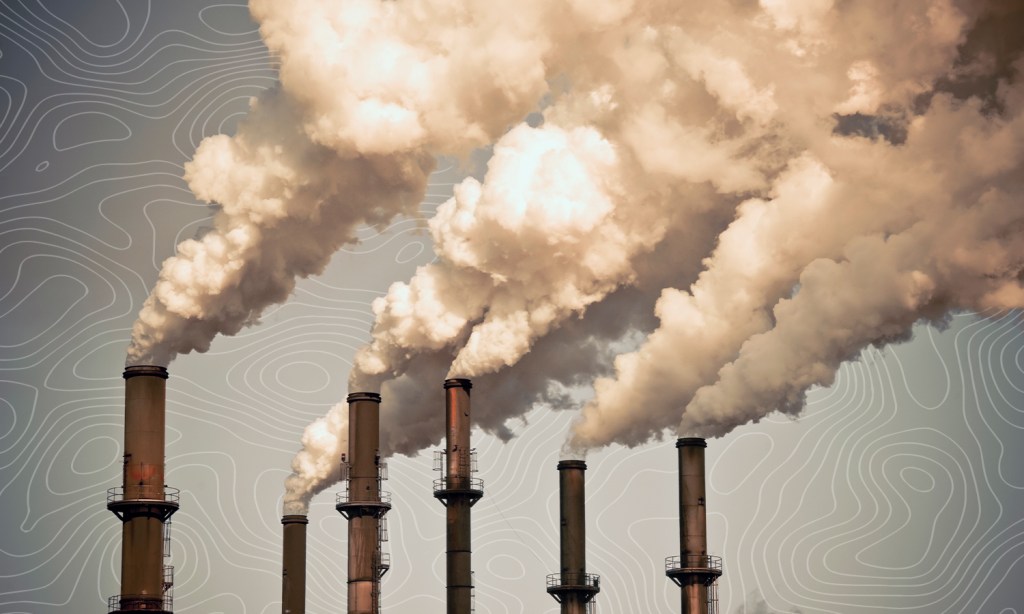New research has pinned down exactly how air pollution causes lung cancer, even in people who have never smoked. While it’s not new that air pollution is bad for us, scientists in the UK have worked out the mechanism that makes living in areas with high levels of pollution a cancer risk.
“The same particles in the air that derive from the combustion of fossil fuels, exacerbating climate change, are directly impacting human health,” said Charles Swanton, the Francis Crick Institute and Cancer Research UK Chief Clinician, London, UK.
“The risk of lung cancer from air pollution is lower than from smoking, but we have no control over what we all breathe,” he added.
The prevailing belief was that cigarette smoke caused mutations in lung tissue, leading to cancers. However, that fails to explain why people who don’t smoke still get lung cancer. What this new data shows is that two common genes in our lungs can be triggered by the presence of air pollution and go into overdrive in their healing process, leading to cancer.
The new data draws on human and laboratory research on mutations in genes called EGFR and KRAS, which are seen in about half of people with lung cancer who have never smoked.
The study looked at nearly half a million people in England, South Korea and Taiwan, finding that exposure to increasing concentrations of particles in the air just 2.5 micrometres in diameter was liked to an increased risk of EGFR and KRAS mutations. These particles, known as PM 2.5, are incredibly fine and can travel deep into our airways where they cause issues.
Australian Air Quality
Australia actually has some of the best air quality on the planet. Global air quality monitoring organisation, IQAir, ranked Australia 9th out of 117 countries for air quality in its 2021 annual report.
According to them, air pollution is “now considered to be the world’s largest environmental health threat,” with seven million deaths around the world each year associated with poor air quality.
In 2021, the World Health Organisation cut its recommended concentrations of PM2.5 in air from 10 microgrammes per metre cubed to five microgrammes in order for air to be healthy to breathe. So far, no country has entirely managed to reach this level, although Australia isn’t bad.
According to the IQAir Quality Index, Australia overall has an average PM2.5 of eight microgrammes per metre cubed of air.
While our average is good, our air quality often spikes to become some of the worst in the world during periods of intense bushfires, making it even more important to keep levels low outside of periods of natural disaster.
Our air quality is also incredibly varied, depending on where you live. Tasmania, for example, has some of the best air quality in the country, with 23 of the cleanest 25 towns and cities in the country in the Apple Isle. St Helen’s, on Tasmania’s north coast, has the cleanest air in the country, with PM2.5 levels of just 2.4 microgrammes per square metre.
At the other end of the spectrum, you’ve got Australia’s worst cities. Armidale, in NSW, tops the rankings, with a PM2.5 concentration of 23. This is thought to be due to the popularity of wood burners to heat housing in the winter in the northern tablelands town.
Tamworth, also in NSW and not far from Armidale, has a PM2.5 average concentration of 15.2 while Canberra has the worst air quality of any capital city with an average of 15.
Although Australia has some of the strictest requirements in the world when it comes to PM2.5, it has much lower restrictions for things like sulphur dioxide, lower even than China and India. Sulphur dioxide is produced by coal-fired power stations, making the air in Victoria’s Latrobe Valley and NSW’s Muswellbrook and Port Macquarie far more polluted given the placement of power stations nearby.
You can see live updates for air quality in your local area at the IQAir website.
Related: Dyson’s New Air Purifying Headphones Are Making Apocalypse Chic Happen
Related: This Is How Bushfire Smoke Can Impact Your Health and How to Mitigate This
Read more stories from The Latch and subscribe to our email newsletter.







